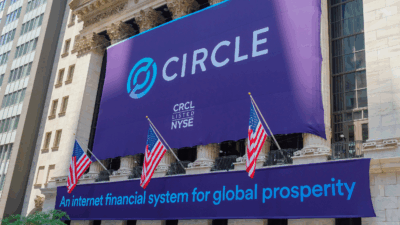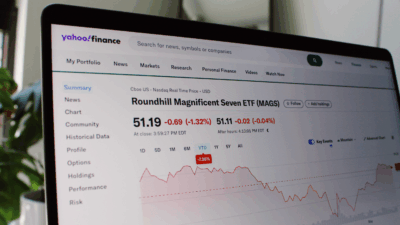
Sign up for smart news, insights, and analysis on the biggest financial stories of the day.
Hush, honey. Adults are talking.
After FTX’s monumental meltdown last year, it was clear the crypto industry needed to get a haircut, turn off the rock n’ roll, and grow up, i.e. — start operating under some real regulations, even if Washington hasn’t entirely figured them out.
Maybe BlackRock was the parent crypto always needed.
Playing with the Big Kids
Cryptocurrencies hit the scene in 2009 with the launch of Bitcoin, and from there, tens of thousands emerged, acting as digital wallets on decentralized networks and unregulated by governments — real bank-disruptor stuff. A few even made a killing, especially when the industry started to look more legit via legacy banks and expensive celebrity endorsements. In 2021, one Bitcoin was worth more than $60,000. In the absence of meaningful industry oversight, crypto was always going to be risky (to wit, a Bitcoin is now worth about half of what it was two years ago).
So far, the US Securities and Exchange Commission has approved crypto ETFs based only on bitcoin futures contracts. Those are listed on the Chicago Mercantile Exchange, a regulated venue. But it’s yet to pull the trigger on approving so-called spot ETFs, which would allow people to directly buy and trade Bitcoins similar to investing in stocks. The SEC has denied these types of applications for a decade, citing a high potential for fraud and manipulation, as well as seeing most crypto-trading tokens as essentially unregulated securities. But a new challenger has appeared, one who happens to know a thing or two about succeeding in a highly regulated financial world.
- BlackRock has risen to be the largest asset manager in the world, with a portfolio recently valued at $8.6 trillion. It also has deep connections to world leaders, and in the US, it’s sometimes referred to as the fourth branch of government. BlackRock has the clout, legitimacy, and money behind it to maybe sway the SEC where others have failed.
- With the hopes of getting on the Nasdaq, BlackRock’s iShares Bitcoin Trust includes a “surveillance-sharing agreement.” That’s a real weedy term, but it’s basically just a measure to boost transparency on the exchange. Bloomberg analyst Eric Balchunas said BlackRock has a 50-50 shot of getting greenlit as the SEC has approved 575 of its applications and rejected only one. If successful, this could open the gates for more companies like Fidelity, WisdomTree, and Invesco to gain approval for their spot ETFs too.
“The BlackRock ETF is likely to be approved,” CoinRoutes CEO Dave Weisberger told the Financial Times.
Back from the Dead: FTX, the aforementioned crypto exchange that lost billions of dollars over just a few days thanks to founder Sam Bankman-Fried’s terrible management and possible criminal activity, could make a zombie-like return. According to The Wall Street Journal, CEO John J. Ray III said the company “has begun the process of soliciting interested parties to the reboot of the FTX.com exchange.” Ray previously told the WSJ that despite alleged fraud, customers and investors loved FTX’s business model and were happy with the product. First, it came for our wallets, let’s just hope this time it doesn’t come for our brains.











